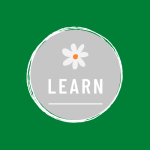Ask Yourself: Evaluating a Lesson
How to Evaluate Your Own Work
- What do I want to accomplish?
- Why should I trust my judgment?
- How do I know what questions to ask?
Holding Yourself Accountable
Before you begin the first lesson, you’ll set three writing goals, listing them in your Process Notebook. These goals, in turn, will guide the “Ask Yourself” evaluations at the close of each lesson, providing a record of your progress.
An individually directed writing program has to be sparked by what matters to you. No outside authority will cheer you on or give a thumbs up. But by evaluating your own work, you hold yourself accountable for the progress you make.
Regular self-evaluation is essential for becoming a better writer.
At the start, you may not want to do self-evaluations of your lessons. I can well imagine writers wondering, “How do I know how well I did? I’m no expert!” However, I hope you come to trust your own judgment. I can’t force you to evaluate yourself, but I can emphasize that regular self-evaluation is essential for becoming a better writer.
Open-Ended Questions
Thinking about your own thinking is known as metacognition. More specifically, it refers to the self-knowledge you have about how you learn – that is, your ability to understand why doing a task matters. Many educational researchers laud its benefits for learning and self-discovery.[1]
Reflect on what you’re doing.
In the lessons, I often nudge you to reflect on what you’re doing and thinking. When you develop mental tools like self-awareness and questioning, you’re honing metacognitive skills. Reflecting on your life and times is central to first-person storytelling, and asking open-ended questions about your writing encourages such self-reflection.[2]
Rather than simply following instructions for lesson activities, you’ll evaluate what helped you make progress. The box below lists possible open-ended questions about your work, including the main question for “Ask Yourself” evaluations:
Have I made progress on my three writing goals – why or why not?
The why is key. Open-ended questions encourage more than brief answers, and they beget more questions. So, for your self-evaluations, I suggest you respond to at least one other question in addition to the main one. For example:
How much does my voice resemble the way I talk?
In this case, the way you talk tends to be more expressive than formal writing style, and that question opens up how you sound to readers. Conversational or stiff? Vulnerable or defensive? Use questions like this to spark your thinking.
The Value of Closure
Evaluating your lesson work has an additional benefit: it provides closure before you move on. Too often, participants leap to the next thing before digesting what they’ve finished. Digital lessons reinforce clicking “complete” or “submit” as fast as you can, racking up the equivalent of points to indicate progress. Such a reductive approach is not what I mean by closure or self-evaluation.
How you end an activity matters as much as how you begin it.
Transitions are hard to make in daily life, let alone in stories. That’s why paying attention to how you end an activity matters as much as how you begin it. Even acknowledging the need for closure can help your writing routine. Rather than “I’ll write when I have time,” try a specific goal such as “I’ll write for ten minutes every morning – and close with a one-minute reflection.”
Consider the self-evaluations at the end of each lesson to be closure practice. As you continue writing, you may want to explore other closure techniques, such as repeating affirmations, playing a favorite song, meditating for a few minutes, or coming up with your own checklist and rating scale.[3]
Self-Evaluation Questions
Main Question:
- Have I made progress on my three writing goals – why or why not?
Other Possible Questions:
- How honest am I being in my personal stories?
- What excites me most about my writing?
- How anxious am I feeling about the writing I’m doing?
- How much am I truly being me?
- What’s my potential audience?
- How much does my voice resemble the way I talk?
- How much am I paying attention?
- How comfortable am I with uncertainty?
- Emphasis on metacognitive awareness has been a part of innovative instructional design for decades. The work of Ron Ritchhart at the Harvard Graduate School of Education, among many educational researchers, is particularly noteworthy. For instance, see Making Thinking Visible: How to Promote Engagement, Understanding, and Independence for All Learners by Ron Ritchhart, Mark Church, and Karin Morrison (Jossey-Bass, 2011). ↵
- In contrast, avoid yes/no checkoffs like "Did I finish all four activities?" They leave little space for self-reflection. See "The Real Power of Questions" by Ron Ritchhart, Creative Teaching and Learning (vol. 2.4), 2012 and "How Metacognition Can Improve Your Writing" by Dawn Bevier, Medium, August 16, 2020 (from the site Better Marketing). ↵
- In test versions of these lessons, I included a Google sheet with four questions and a rating scale for self-evaluations. Some users liked this visual spreadsheet, although most preferred more free-form reflection. If you'd like to try my online spreadsheet, start here: Copy this Google sheet. Title the copy with your own name (such as "Martha's Evaluations"). The idea is to rate the four questions on a scale of 1–5. The current version is set to generate a colorful bar chart, but you're free to revise the questions or visual format. ↵
